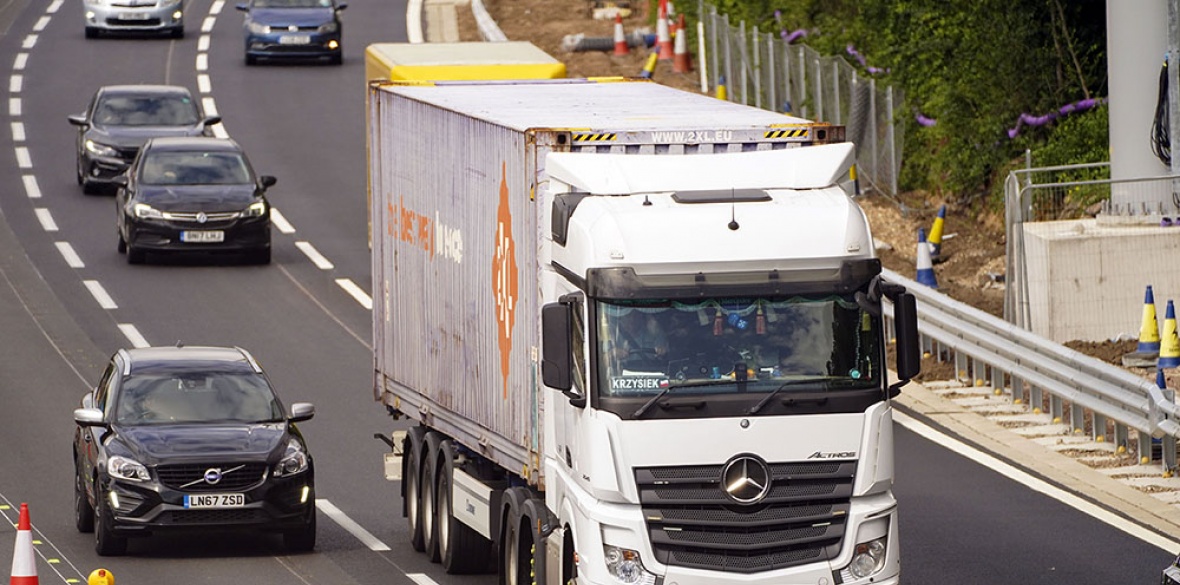This is the last article you can read this month
You can read more article this month
You can read more articles this month
Sorry your limit is up for this month
Reset on:
Please help support the Morning Star by subscribing here
IT IS typical of the ruling-class mentality that usually finds an early expression in the policies of this Tory government that the first reaction to complaints by employers that they are experiencing a driver shortage is to relax the limits on working time.
Driving delivery vehicles, of whatever size, is a job that demands a high level of skill combined with a sharp attention to all manner of factors including weather, road conditions and the behaviour of other road users.
It is also vital to the delivery of almost everything we eat, use or need. We can think of this as essential to the smooth running of the economy, and so it is.
But employers usually think of it as essential to the accumulation of profit, with every other consideration secondary.
Thus it is remarkable that Unite, which represents HGV drivers, is joined by the employers’ body, the Haulage Association, to oppose the move on safety grounds.
Unite says it won’t solve the shortage problem and the employers say it’s merely a “sticking plaster” on the problem of a national delivery crisis.
Boris Johnson’s government taking measures to intensify the exploitation of delivery drivers’ labour is no surprise.
Let’s take a rash guess that Baroness Vere of Norbiton — junior minister in the Department of Transport — has limited experience of driving an heavy goods vehicle for 48 hours a week and has little conception of the how much an extension of these hours increases the stress and dangers of the job.
If this is indeed the case, then she is typical of MPs — regrettably, of all parties — who share little of the life experiences of working people.
There may well be a shortage of drivers for the usual labour market reasons. Certainly Covid-related absences and competition from employers in this expanding sphere of the economy are likely but common sense tells us that two key factors also play a role.
First, in an anarchic capitalist economy, employers try to set off the costs of training a corps of skilled workers to anyone but themselves.
And as a consequence of the government’s failure to levy them to fund driver training and its overarching antipathy to sensible labour market planning and skills training, we have a shortage.
Unite points out that the road haulage industry is predominantly a white, male, middle-aged industry.
By way of comparison it says there are significantly more women and black and ethnic minority bus drivers than HGV drivers, and puts the onus on employers to sort this.
The union identifies long hours, uncertain working hours and high levels of surveillance as key issues, and it highlights the fact that drivers are underpaid while the culture of driving down terms through benchmarking and outsourcing as well as the misuse of agency drivers and bogusly self-employing drivers means pay does not reflect the skills, knowledge and qualifications needed to do the job.
Second, the legal framework and employment law buttress these vicious labour market practices and have succeeded in making the job markedly less attractive.
There is a shortage of 75,000 drivers. We can envisage all manner of short-term measures to make the situation better — more training resources, grant aid for young applicants, industry-wide sectoral bargaining to raise wages, legally enforceable shorter hours, better rest and refreshment facilities and a culture change throughout the sector.
But the systemic problems of this industry and other industries are only partly amenable to reform until the balance of power in the workplace is shifted decisively in favour of working people.
Nowhere has this happened under capitalism.












